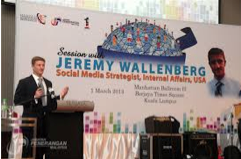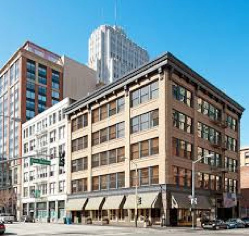Walk with me for a moment into California’s employment future, following a path I took on a recent afternoon.
We start at my law firm, Sedgwick LLP, headquartered at 333 Bush, on Bush near Montgomery in the center of San Francisco’s financial district. We walk down Montgomery Street to Market, passing the high rises that house San Francisco’s traditional economy of finance, law, real estate and professional services.
As we cross over Market at Second Street, there is no signpost announcing the emerging internet economy, but we have entered it. Wherever we turn are young women and men, most in their twenties and thirties, who are involved in an internet start-up or pursuing an idea for an internet start-up.
Many of these start-ups involve the consumer economy: selling goods or services in different ways on the internet, or establishing platforms for consumers to share information or recommendations. Others involve using the internet technology on new approaches to social issues: financing micro businesses, improved linking of patients and health care professionals, better use of alternative energy sources.
At 58 Second Street we stop to see Jeremy Wallenberg, executive director of sf.citi, the industry group of over 600 internet firms assembled by Ron Conway. Jeremy is involved in several internet projects, including a real time parking program for the Warriors Arena, and a series of high school tech academies.
Proceeding down Second toward Howard Street, we run into Chris Correa, a denizen of the internet economy, who is heading back to his nearby office. Chris is one of California’s experts in advertising on the internet, and the migration of advertising from traditional media.
 Then it’s on to 589 Howard, the offices of FWD.us. Joe Green and Manny Yekutiel of FWD.us currently are laser-focused on the immigration debate . But Joe also has pioneered several internet enterprises, using the internet and social media to market small businesses as well as nonprofits and political movements.
Then it’s on to 589 Howard, the offices of FWD.us. Joe Green and Manny Yekutiel of FWD.us currently are laser-focused on the immigration debate . But Joe also has pioneered several internet enterprises, using the internet and social media to market small businesses as well as nonprofits and political movements.
Within a half-mile radius of Second and Howard are more than ten major assemblies of tech firms. They are housing hundreds of internet start-ups, either as co-work spaces, incubators, or accelerators. Some of the main ones pushing forward internet start-up growth: the Hatchery, the Hub, Founders Den, WeWork, Runway, the Hattery (with the tech training firm, GeneralAssembly), and, of course, Rocketspace.
Forty-six years ago this summer, Yale Professor Charles Reich came to San Francisco and praised the emerging youth culture he found, first in the best-selling The Greening of America and later in his autobiography The Sorcerer of Bolinas Reef. Charles Reich wrote in Sorcerer, “The kids-they found the road again. We found it. All of us together made a new spirit possible.”
Reich described the new culture as a higher Consciousness rejecting the market system and competition in favor of cooperation and mutual support. This Consciousness also was one of personal discovery, growth and insight. Reich continued in Sorcerer :
“Old ways of thinking had become entrenched, obsolete, and finally destructive. A larger vision was necessary. New consciousness was the beginning of a period of profound individual liberation and growth, and it spread the knowledge that such growth is both possible and necessary.”
Reich’s new Consciousness proved illusory. Most individual communes and coops split apart within a few years of forming. The early 1970s downturn in the national economy revealed the self-indulgence central to this Consciousness, and proponents fled. Reich and other spokespeople withdrew to other pursuits.
This new internet business culture, though, will not prove illusory. It is based on firmer moral and social grounds. It is driven by historical forces of resource limits, globalization and technology.
The jobs that are part of this internet economy today form a small part of all jobs in California—less than 7% of jobs even in San Francisco. In the future, they will continue to be a limited part of the job mix. However, their role will be multiplied in generating jobs in other sectors, and in bringing the needed creativity and risk taking to the broader economy.

